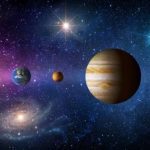 Animals
Animals  Animals
Animals  Movies and TV
Movies and TV 10 Box Office Bombs That We Should Have Predicted in 2025
 History
History 10 Extreme Laws That Tried to Engineer Society
 History
History 10 “Modern” Problems with Surprising Historical Analogs
 Health
Health 10 Everyday Activities That Secretly Alter Consciousness
 History
History Top 10 Historical Disasters Caused by Someone Calling in Sick
 Animals
Animals 10 New Shark Secrets That Recently Dropped
 Movies and TV
Movies and TV 10 Forgotten Realities of Early Live Television Broadcasts
 Technology
Technology 10 Stopgap Technologies That Became Industry Standards
 Weird Stuff
Weird Stuff 10 Wild Facts About Taxidermy That You Probably Didn’t Know
 Animals
Animals The Animal Kingdom’s 10 Greatest Dance Moves
 Movies and TV
Movies and TV 10 Box Office Bombs That We Should Have Predicted in 2025
 History
History 10 Extreme Laws That Tried to Engineer Society
Who's Behind Listverse?

Jamie Frater
Head Editor
Jamie founded Listverse due to an insatiable desire to share fascinating, obscure, and bizarre facts. He has been a guest speaker on numerous national radio and television stations and is a five time published author.
More About Us History
History 10 “Modern” Problems with Surprising Historical Analogs
 Health
Health 10 Everyday Activities That Secretly Alter Consciousness
 History
History Top 10 Historical Disasters Caused by Someone Calling in Sick
 Animals
Animals 10 New Shark Secrets That Recently Dropped
 Movies and TV
Movies and TV 10 Forgotten Realities of Early Live Television Broadcasts
 Technology
Technology 10 Stopgap Technologies That Became Industry Standards
 Weird Stuff
Weird Stuff 10 Wild Facts About Taxidermy That You Probably Didn’t Know
Modern Echoes: 10 Ancient Myths Reimagined
In the vast tapestry of human history, ancient myths are the vibrant threads that bind the past to our present, weaving tales that resonate with timeless themes and universal truths. These narratives, rich with gods, heroes, and fables, echo through the ages, illuminating the complexities of modern existence. This list embarks on an exploratory journey into the heart of these stories, unveiling the profound and often surprising ways in which they reflect, challenge, and shape our contemporary world.
This collection is an invitation to venture beyond the realm of the known to explore the ancient wisdom embedded within these myths, now reimagined for the modern epoch. As we revisit the trials and triumphs of mythical figures, we discover not only the roots of our shared humanity but also enduring insights that illuminate the complexities of the present. Join us on this captivating journey as we bridge worlds, uncovering the echoes of ancient myths that resonate with vivid clarity in our lives today, casting light on the shadows of the present and guiding our path into the future.
Related: 10 Ways the Metaverse Will Change the World
10 The Icarus Paradox: Ambition and Caution in the Digital Age
The ancient myth of Icarus, who perished after flying too close to the sun with wings of wax and feathers, stands as a powerful caution against unchecked ambition. This narrative, deeply ingrained in human culture, resonates profoundly in today’s era of relentless technological pursuit. Icarus’s story, emblematic of the human tendency to reach beyond our grasp, mirrors the contemporary drive toward technological breakthroughs, where innovation often races ahead of ethical considerations and safety.
In the modern context, we see the Icarus paradox play out in the push for advancements in artificial intelligence, genetic modification, and space exploration. These fields promise to elevate humanity to unprecedented heights but also harbor the potential for catastrophic outcomes, echoing Icarus’s fate. The myth serves as a poignant reminder of the importance of balancing ambition with prudence, highlighting the dangers that lie in the pursuit of progress at any cost.
As we navigate the complexities of the digital age, the tale urges us to reflect on the delicate equilibrium between human aspiration and the constraints of our reality. It is a narrative that not only cautions against the hubris of overreaching but also encourages a mindful approach to the boundless possibilities of innovation. Icarus’s legacy, therefore, is not just a tale of warning from antiquity but a critical lens through which to view our technological trajectory, advocating for a path that harmonizes ambition with wisdom.[1]
9 Pandora’s Box: Unleashing Unforeseen Consequences
The myth of Pandora and her box, bestowed upon her by the gods with the warning never to open it, epitomizes the human trait of insatiable curiosity leading to unintended consequences. Upon opening the box, Pandora released all the evils into the world, leaving only Hope inside. This ancient tale mirrors the contemporary world’s experience with technological and scientific breakthroughs, where the pursuit of knowledge sometimes yields unforeseen and often harmful results.
In the realm of environmental science, for example, the introduction of invasive species as a form of biological control has sometimes devastated local ecosystems. These actions, intended to solve a specific problem, can spiral out of control, echoing Pandora’s unforeseen release of woes upon the world. Similarly, the development and usage of plastics were initially celebrated for their durability and convenience, only to later understand the enduring environmental impact, from polluted oceans to toxic microplastics infiltrating the food chain.
Pandora’s Box serves as a cautionary tale, reminding us that actions taken in the name of progress and innovation carry the weight of responsibility for their long-term impacts. It encourages a forward-thinking approach, where the potential consequences of our actions are considered as carefully as their immediate benefits, advocating for a balance between human curiosity and the wisdom to foresee the shadows our innovations might cast.[2]
8 The Tower of Babel: Miscommunication in a Hyper-Connected World
The Tower of Babel myth, where humanity’s pride leads God to confuse their language and scatter them across the earth, serves as a metaphor for the challenges of communication in our increasingly interconnected society. Despite—or perhaps because of—our advanced digital communication tools, we often find ourselves ensnared in misunderstandings and misinterpretations, much like the fragmented humanity of the Babel story. This myth underlines the irony of our times. In an age where technology has the potential to unite us more than ever before, linguistic and cultural barriers continue to divide us.
The phenomenon of “echo chambers” and “filter bubbles” on social media platforms exemplifies the modern Tower of Babel. These digital constructs insulate individuals within linguistic and ideological silos, hampering genuine dialogue and understanding. Just as the dispersion of languages in the myth led to the isolation of communities, our digital discourse often segregates us, highlighting the complexities of global communication and the need for concerted efforts toward mutual understanding.
This tale prompts reflection on the essence of communication in bridging divides. It suggests that, despite the vast array of tools at our disposal, the key to overcoming our modern Babel lies not in the sophistication of our technologies but in our ability to listen, empathize, and translate across the myriad languages of human experience. The Tower of Babel myth, reimagined, becomes a call to action for transcending our digital and linguistic partitions to rediscover the art of conversation in a fragmented world.[3]
7 Hercules’s Labors: The Quest for Environmental Restoration
The myth of Hercules and his twelve labors, undertaken as penance for past wrongs, resonates with the contemporary struggle for environmental conservation and restoration. Just as Hercules faced seemingly insurmountable tasks to redeem himself, today’s society grapples with the monumental challenge of mitigating environmental damage and reversing the course of climate change. This parallel not only highlights the Herculean effort required to address these global issues but also underscores the possibility of redemption through sustained effort and innovation.
In the fight against climate change, each initiative, whether it’s reforestation, cleaning the oceans, or reducing carbon emissions, can be seen as a modern labor akin to those of Hercules. These efforts require collective action, perseverance, and the kind of heroic resolve that Hercules himself demonstrated. The myth encourages us not to be daunted by the scale of the task at hand but to tackle each challenge with determination and the belief that redemption is possible through concerted effort.
Drawing inspiration from Hercules’s story, the modern narrative around environmental activism and sustainability emphasizes that while the tasks may seem as daunting as capturing the Erymanthian Boar or cleaning the Augean stables in a single day, they are not only necessary but achievable. It’s a call to action for individuals and societies to rise to the occasion, transforming environmental despair into a series of actionable challenges that, like Hercules’ labors, lead us toward a greater good.[4]
6 Orpheus’s Descent: The Power of Memory in the Digital Age
The ancient tale of Orpheus and his descent into the Underworld to retrieve his beloved Eurydice speaks to the timeless human desire to conquer death and cling to the past. In the digital era, this myth finds its echo in the ways we strive to preserve memory and legacy through technology. Just as Orpheus looked back, driven by love and longing, our digital footprints serve as a modern attempt to hold onto what has passed, ensuring that personal and collective histories are not forgotten but immortalized online.
Social media platforms, digital archives, and cloud storage act as the contemporary underworld, hosting the echoes of voices and moments that have shaped us. Through these mediums, we attempt to outwit the finality of death, preserving thoughts, images, and interactions indefinitely. However, just like Orpheus’s journey, this digital preservation comes with its caveats and lessons about the nature of memory and the inevitable acceptance of loss.
This modern parallel urges us to reflect on the impact of digital memorialization on our processing of grief and remembrance. It challenges us to consider how the permanence of digital memories affects our ability to let go and move forward, mirroring Orpheus’s tragic failure to accept the impermanence of life. The myth, reimagined, serves as a poignant commentary on our quest to defy time, underscoring the delicate balance between remembering and releasing.[5]
5 The Siren’s Call: Navigating the Allure of Consumer Culture
In Greek mythology, the Sirens were creatures with the bodies of birds and the heads of women, whose enchanting music and voices lured sailors to their doom on the rocky coast of their island. This myth finds a powerful parallel in today’s consumer culture, where the metaphorical Siren’s call manifests as the relentless barrage of advertising and marketing designed to lure consumers into the treacherous waters of overconsumption and debt.
Just as the Sirens’ songs promised fulfillment and joy, modern advertisements promise happiness and success through the acquisition of goods and experiences. The omnipresence of digital marketing, with its targeted ads that echo our deepest desires and insecurities, mirrors the inescapable allure of the Sirens’ melody, drawing individuals closer to the rocks of financial instability and environmental degradation.
The tale of the Sirens challenges us to cultivate awareness and resilience in the face of temptation, urging us to find our own version of wax to plug our ears or a steadfast mast to which we can tie ourselves, resisting the call to mindless consumption. It serves as a reminder to question the promises made by the modern-day Sirens and seek a path that leads to genuine well-being and sustainable living rather than to the shipwreck of our personal and ecological health.[6]
4 The Labyrinth of Daedalus: The Complexity of the Internet
The myth of Daedalus, the ingenious architect who designed the labyrinth to house the Minotaur, speaks to the complexity and intricacy of human creations. This ancient story resonates with the structure and experience of the modern internet—a vast digital maze of information, entertainment, and social interaction. Like the winding passages of the labyrinth, the internet captivates and sometimes ensnares its users navigating through endless content, often losing their way or becoming trapped in its more nefarious corners.
Daedalus’s labyrinth was designed to be nearly impossible to escape without guidance, reflecting the way the internet can overwhelm with its sheer scale and depth. For every useful resource or positive community, there are misleading pathways and dark alleys, from misinformation to cyber threats. Navigating this digital realm requires modern-day threads of Ariadne—search engines, social media guides, and digital literacy—to avoid its potential perils and find our way to safety and knowledge.
The myth underscores the importance of creating digital spaces that are not only expansive but also navigable and safe. It challenges us to consider how we design our online worlds and the tools we offer for navigation, emphasizing the need for clarity, security, and ethical considerations in the ever-expanding digital labyrinth. This ancient tale, reimagined, calls for a balance between innovation and accessibility, ensuring that the digital age serves as a tool for enlightenment rather than entrapment.[7]
3 Atlas’s Burden: The Global Challenge of Climate Change
The myth of Atlas, condemned to hold up the sky for eternity as punishment, profoundly mirrors today’s global struggle with climate change. This ancient story symbolizes the immense burden of responsibility resting on the shoulders of modern society to combat environmental degradation and secure a sustainable future for our planet. Just as Atlas bears the weight of the heavens, each nation and individual now carries a part of the collective burden of addressing the consequences of our actions on the earth’s climate.
The Herculean task of mitigating climate change, from reducing carbon emissions to preserving biodiversity, demands a collaborative effort reminiscent of the solidarity required to relieve Atlas of his load. It is a reminder that the health of our planet relies on the willingness of all to shoulder their part of the responsibility, making choices that benefit the environment and advocating for policies that protect our natural world.
Atlas’s enduring stance, supporting the sky, challenges us to persevere in the face of seemingly insurmountable odds. The myth encourages us to view the fight against climate change not as a punishment but as a critical mission for the preservation of life as we know it. It calls for a global awakening to the role each person plays in the larger ecological tapestry, inspiring action towards lifting the weight of environmental despair and moving towards a more sustainable coexistence with our world.[8]
2 Achilles’s Heel: The Vulnerability of Cybersecurity
The story of Achilles, the Greek hero whose invincibility was marred by a single vulnerability, his heel, perfectly encapsulates the modern challenges of cybersecurity. In an era dominated by digital technology, our societal strength and efficiency are paradoxically paired with significant vulnerabilities. Just as Achilles was undefeatable except for his heel, our seemingly impregnable digital fortresses harbor weaknesses that can be exploited, leading to widespread consequences.
This myth highlights the importance of vigilance and comprehensive protection in the digital realm. Cybersecurity, much like Achilles’s armor, must be meticulously maintained to guard against the ever-evolving threats that lurk in the vast battleground of the internet. The tale serves as a stark reminder that often, the greatest threats to our systems and data lie in the most overlooked details, the modern-day equivalents of Achilles’s heel.
Addressing cybersecurity vulnerabilities requires a proactive approach, echoing the need for Achilles to have guarded his heel. It’s a call to constantly reassess and fortify our digital defenses, ensuring that the smallest oversight does not lead to our downfall. The myth of Achilles, reimagined, teaches us that in the pursuit of digital advancement, acknowledging and protecting against our vulnerabilities is paramount to sustaining our strength and integrity in the interconnected world.[9]
1 The Phoenix: Renewal Through Innovation
The myth of the Phoenix, a magnificent bird that is cyclically reborn from its ashes, symbolizes the power of rebirth and transformation. This ancient tale finds a profound echo in the modern drive for innovation and the cyclical nature of economic and technological renewal. Just as the Phoenix rises anew, stronger and more splendid than before, industries and societies undergo periods of decline followed by rejuvenation, propelled by breakthroughs and inventive thinking.
In the context of environmental sustainability and green technology, the Phoenix myth encourages us to embrace the potential for regeneration through innovation. The decline of traditional, pollutive industries can give way to the rise of clean energy, circular economies, and sustainable practices, mirroring the Phoenix’s rebirth. This process of transformation, while challenging, is essential for the long-term health of our planet and the advancement of our civilization.
The Phoenix’s cycle of death and rebirth serves as a hopeful metaphor for humanity’s ability to confront its challenges, adapt, and emerge revitalized. It underscores the importance of resilience and optimism in the face of adversity, reminding us that groundbreaking solutions can rise from the ashes of old ways and failed attempts, leading to a brighter future for all. The tale of the Phoenix reimagined thus becomes a beacon of hope, symbolizing our capacity for renewal and the endless possibilities that innovation can bring to our world and its preservation.[10]








